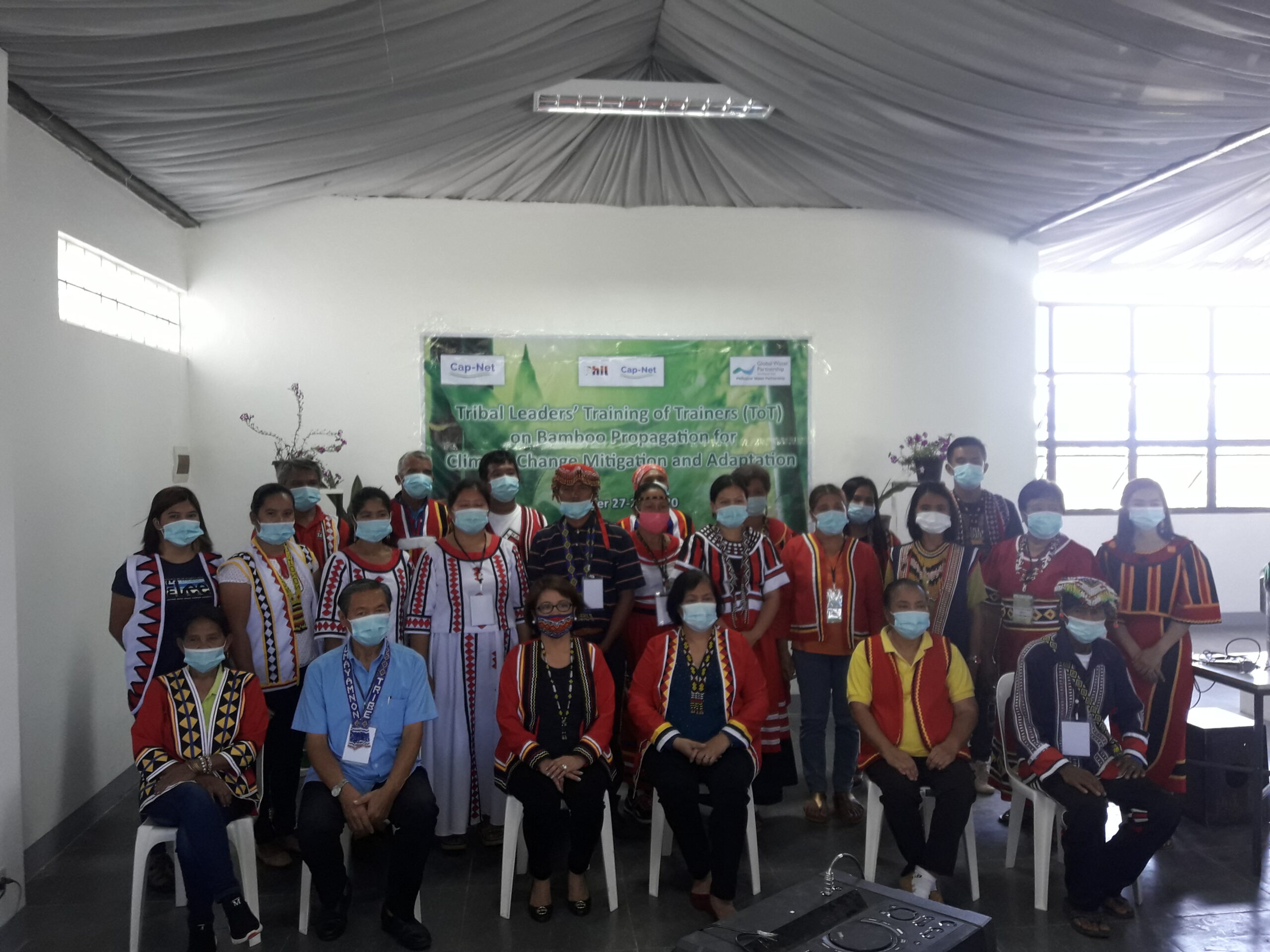Despite numerous challenges under the “New Normal”, including strict compliance with the health and safety protocols imposed by the Philippine Government, PhilCapNet was able to conduct a 3-day Training of Trainers (ToT) on 27-29 October 2020 for the Tribal Leaders of Indigenous Peoples (IPs) in the Province of Bukidnon in the southern island of Mindanao. The TOT was on Bamboo Propagation for Climate Change Mitigation and
Adaptation.
Under the Indigenous Peoples’ Rights Act, IPs are responsible for maintaining ecological balance in their Ancestral Domain by protecting the flora, fauna and watersheds. The 21 TOT participants were tribal leaders from the six Ancestral Domains situated within the headwaters of the second largest river system in the Philippines, the Pulangi River or Rio Grande de Mindanao. The Ancestral Domain Owners have pending proposals with the National Power Corporation for funding the establishment of Bamboo Plantations along the banks of the Pulangi River, upstream of the Pulangi IV Hydropower Plant, according to Datu Jemuel Perino, principal organizer of the TOT and Vice-President of PhilCapNet.
The role of bamboo in the global carbon cycle has been recognized by the Department of Environment and Natural Resources in its decision to focus the funds and efforts of the Expanded National Greening Program (ENGP) on the planting of bamboo. Bamboo mitigates climate change by acting as a carbon sink that absorbs carbon dioxide from the atmosphere. It surpasses the carbon sequestration capacities of any current fast-growing reforestation species, inasmuch as after harvesting, “it regenerates and just keeps on giving of itself”, said Forester Myrna Decipulo, the Principal Trainer. Bamboo’s water storage and erosion control capabilities also facilitate adaptation to the negative impacts of climate change.
The ToT covered the whole bamboo life cycle, from the establishment of nurseries and plantations, protection and management, intercropping with fruits and vegetables, and sustainable harvesting for the marketing of raw materials. Additionally, the participants were provided by Engr. Rodora Gamboa, Executive Director of the Maynilad Water Academy, with information on the value chains for traditional bamboo products and for engineered bamboo products including school desks, ply and particle boards, floors and furniture – for both local and foreign markets.
As noted by one of the Participant-IP leaders, Datu Alvaro Salahag, Jr. of the Bukidnon Umayamnon Tribe, “Planting of bamboo is familiar to our tribe, inasmuch as we have been using bamboo in our daily life. However, with this training, I came to know that it has many more uses, including the great economic potential of bamboo in the world market, considering that (among others), it is an excellent substitute for wood through the engineered bamboo technology, and therefore, helps in preventing further cutting of trees, and thereby helping in the cleaning of our polluted air”.
At the close of the TOT, PhilCapNet President Cecilia Soriano expressed the hope that results on the ground would soon be felt with the establishment of bamboo plantations that will contribute to the ENGP not only by reforesting denuded areas but also by providing IPs and other upland communities with sustainable incomes and livelihood opportunities.
